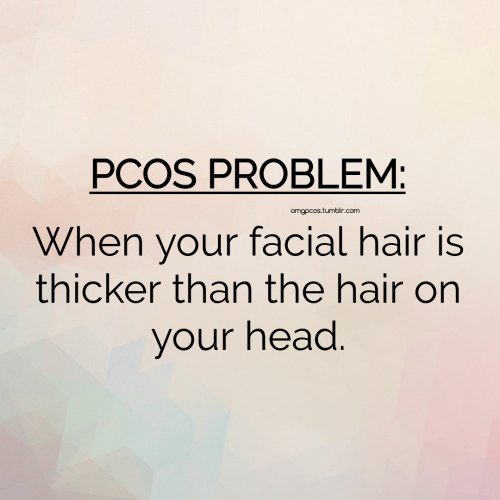#insulin resistance
The University of Illinois at Chicago has received a $3 million federal grant to study the effects of inflammation on polycystic ovary syndrome, or PCOS.
Affecting one in seven women, PCOS is an endocrine system disorder that disrupts the menstrual cycle and impedes ovulation. It often causes acne and excess hair growth on the face and abdomen, and is one of the most frequent causes of female infertility.
The exact cause is unknown, but researchers think that excess insulin, inflammation, and genetics may all contribute.
The study, funded by the National Institutes of Health, will look at the role of inflammation in 90 women with PCOS. Principal investigator Dr. Frank González says the goal is to understand the underlying mechanisms of PCOS.
“While we have made great strides in helping women with PCOS, we need more research to understand exactly what happens in the body to cause the ovaries to malfunction,” said González, associate professor of obstetrics and gynecology and director of the laboratory for reproductive endocrine and inflammation research in the UIC College of Medicine. “This study will test whether or not inflammation contributes to ovarian dysfunction independent of weight and insulin resistance.”
González and his research team will randomize patients into two groups. The control group will receive a placebo and the study group will receive a nonsteroidal anti-inflammatory drug called salsalate, commonly used to treat patients with joint pain caused by inflammation in conditions like rheumatoid arthritis.
Participants will undergo testing before and after treatment to measure inflammation in response to consuming a large dose of fats or sugar, insulin resistance and secretion of ovarian androgen. Elevated levels of androgen, also known as the “male” hormone, are believed to contribute to PCOS. During the 12-week trial, researchers will also monitor patients for ovulation during treatment and analyze weight and degree of insulin resistance.
“We expect that women with PCOS receiving salsalate treatment will exhibit evidence of ovulation, decreased ovarian androgen secretion, and reduced inflammation, regardless of weight or degree of insulin resistance,” González said. “If our hypothesis is proved correct, this will provide needed evidence that treatment with a nonsteroidal anti-inflammatory agent can help support normal ovarian function and help direct future therapeutic research.”
Doctors diagnose PCOS when other conditions are eliminated. They look for at least two of three signs of PCOS: irregular periods, excess androgens and enlarged ovaries containing numerous small cysts. Because the exact cause of PCOS is still unclear, current treatment primarily focuses on management of symptoms.
Women interested in participating in the study can contact UIC’s department of obstetrics and gynecology at [email protected] or (312) 996-7006.
The PCOS nutrition Center shared this so I had to pass it along because this is huge for PCOS research and a step forward in awareness.
We are midway through 2020 and I forgot to share information on The PCOS Diva/PCOS Challenge Confidence Grant but there is still time to submit for the FALL grant. I know a lot of people struggle with the skin and hair aspects of PCOS but cannot afford to see a dermatologist or pay full price for treatment so this is worth looking into if you are interested.
It was created to help people struggling with hair and skin issues associated with PCOS. The grants are awarded twice a year, in amounts up to $500 per individual to assist in costs with dermatology treatments, laser hair removal, or electrolysis. Please note that when you access the site, they do use female pronouns and reference to women/girls. The payments are made directly to the provider who is performing the treatments.
You can find out all the information at the link below, but here is some info.
There are only 3 restrictions at this time:
- You MUST be diagnosed with Polycystic Ovarian Syndrome by a physician.
- You MUST be a legal permanent US resident.
- You MUST be at least 18 years of age or application must be completed by a parent or legal guardian if the prospective grant recipient is less than 18 years of age.
You need to include a personal statement and other supporting materials, such as physician statement, a head shot, and photo showing why you are applying (acne, hirsutism, hair loss, etc).
Dates of Interest
Grant submission deadline for SPRING consideration 5/1/20Grant decisions announced for SPRING funding 7/14/20- Grant application is available online for the FALL beginning 8/19/20
- Grant submission deadline for FALL consideration 11/3/20
- Grant decisions announced for FALL funding 12/9/20
For full details (terms and disclosure, questions, etc) and to apply, you can click here.
Note: I am not affiliated with either PCOS Diva or PCOS Challenge, or the grant. I discovered the grant while doing research and wanted to pass it along for those who would be interested.

